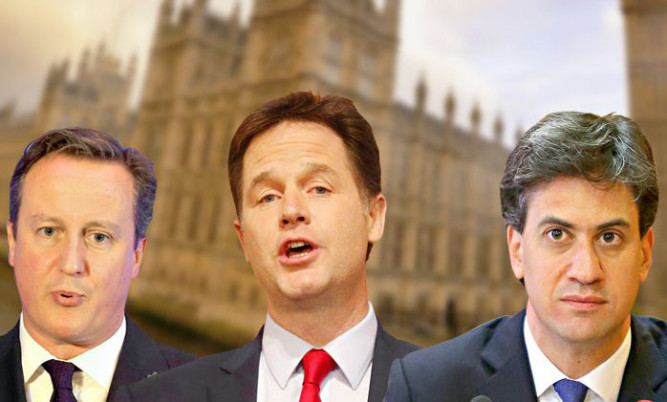
The 2010 coalition negotiation was a “piece of cake” compared to what looks likely after May’s General Election, the former cabinet secretary who brokered the Tory-Lib Dem government has said.
Sir Gus O’Donnell, who now sits in the House of Lords as Lord O’Donnell, said the process in 2010 was “extremely exciting” but warned that this time it would be a “longer” negotiation.
Speaking on the BBC Radio 4 Today programme, he said his successor Sir Jeremy Heywood would have to plan for a much wider range of possibilities, including minority government and confidence and supply arrangements.
Lord O’Donnell said managing the resulting government could also be different as a fragile administration would have to avoid repeated crunch votes in the Commons – potentially meaning fewer new laws.
He said: “It was extremely exciting. You had a serious job to do, we didn’t have any precedents so it was quite difficult – there weren’t many people alive who knew about coalitions.
“But I think it was a piece of cake compared to what might happen this time, to be honest. That’s because if one looks at the predictions, and I think within the Civil Service my successor Sir Jeremy Heywood will be starting off with predictions, they will be preparing for all sorts of options.
“This time round I think they will include minority governments and possibly some kind of mix. There could be a party in coalition with a second party but having a supply and confidence deal with a third party.”
Lord O’Donnell revealed a supply and confidence agreement between the Tories and Liberal Democrats was drawn up last time but proved unnecessary after a deal for a full coalition was struck.
He added: “What you are trying to do is get to a stable, effective government. Where Sir Jeremy will be getting to now is not so much thinking about what options there might be but for each option how do we turn that into effective government?
“For example, they will be studying processes and tactics from the past – remember the first half of the last century there were more minority and coalition governments than not, so there is quite a lot of precedents to go on.
“They will also be thinking about how do we manage government when you don’t want to go to the House too often with very contentious votes? Instead of legislation, can you have other ways of doing things?
“We might have fewer laws, which I think if they are fewer, better thought-through, better legislated, could be good. They have the behavioural insights approach which says instead of heavy-handed regulation, can we nudge people towards the right thing?”
Lord O’Donnell said parties were clearly already signalling to each other about their priorities but warned this was unlikely to speed things up in May.
He said: “This time it might be a longer negotiation, it might take more time. It’s really hard to tell.”
“I think the fact is the Conservatives and Lib Dems have been in government together, they know each other very well, they know quite a lot of what really matters to each other.
“I think Labour in its manifesto is laying out what it thinks is really important. So there’s quite a lot of public foreplay, if you like, and we will see what is consummated in the weeks ahead.”

Enjoy the convenience of having The Sunday Post delivered as a digital ePaper straight to your smartphone, tablet or computer.
Subscribe for only £5.49 a month and enjoy all the benefits of the printed paper as a digital replica.
Subscribe